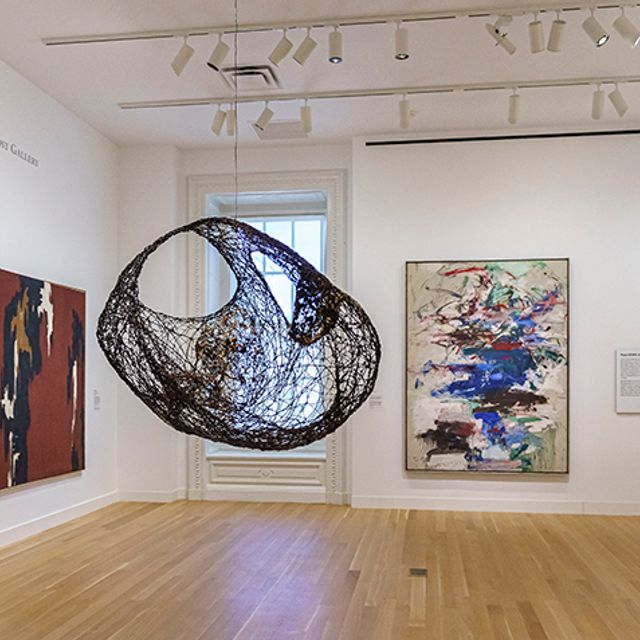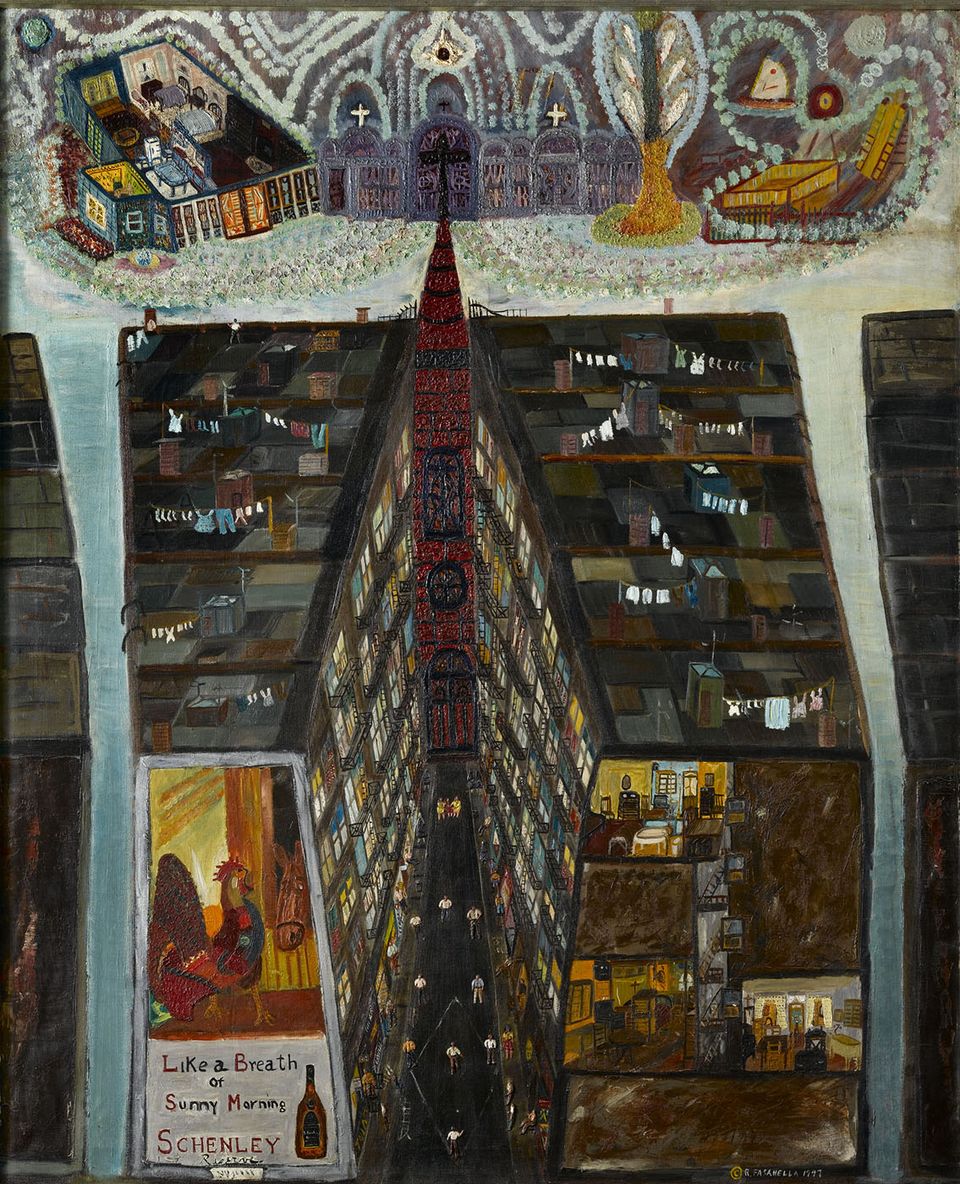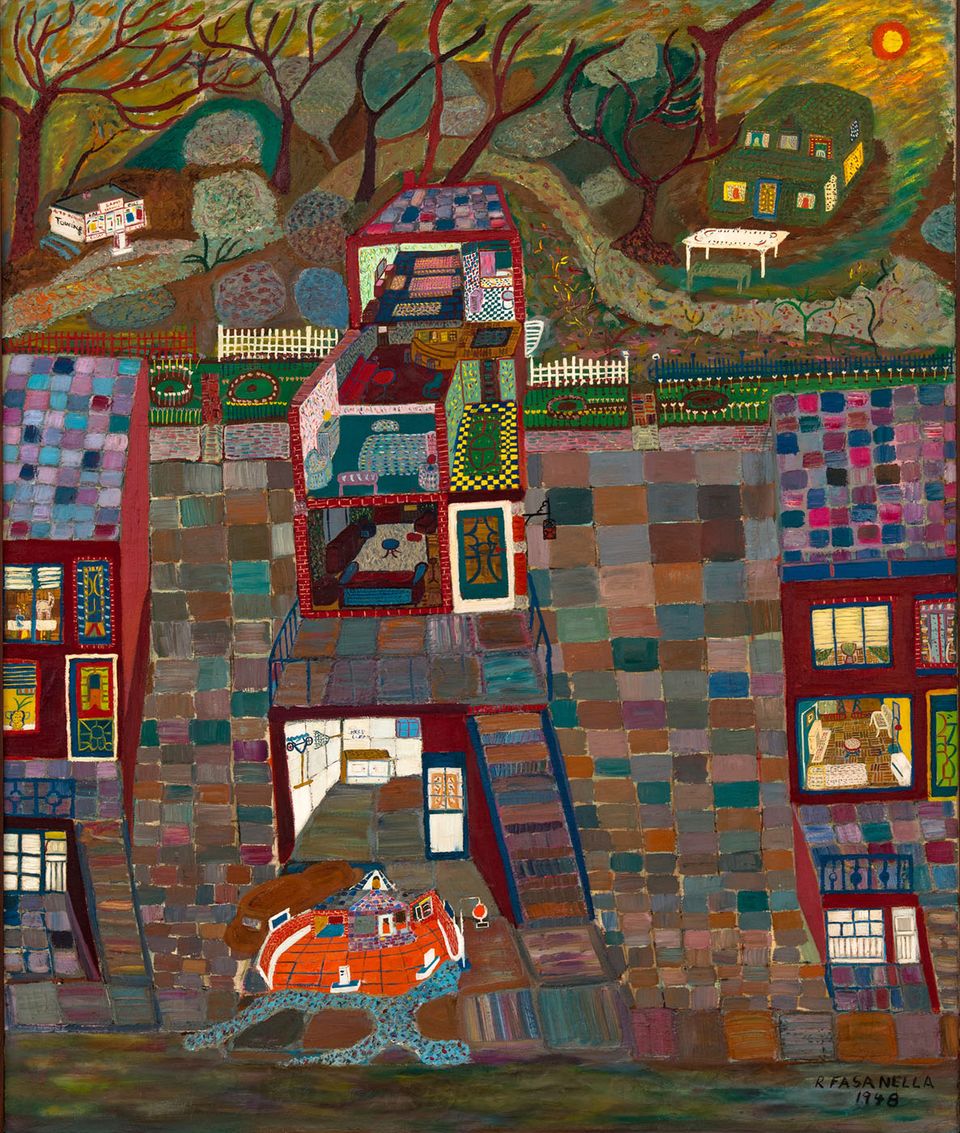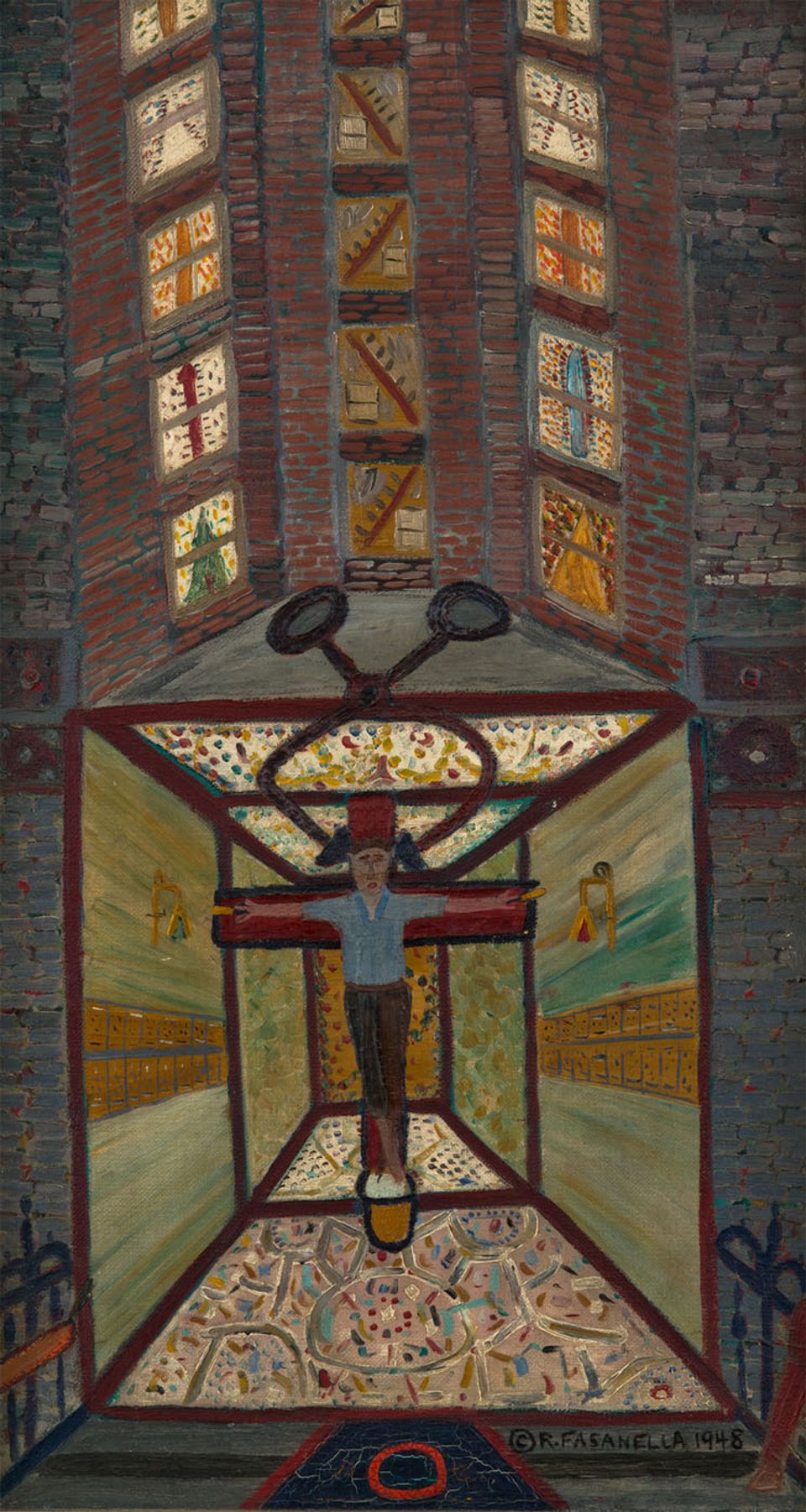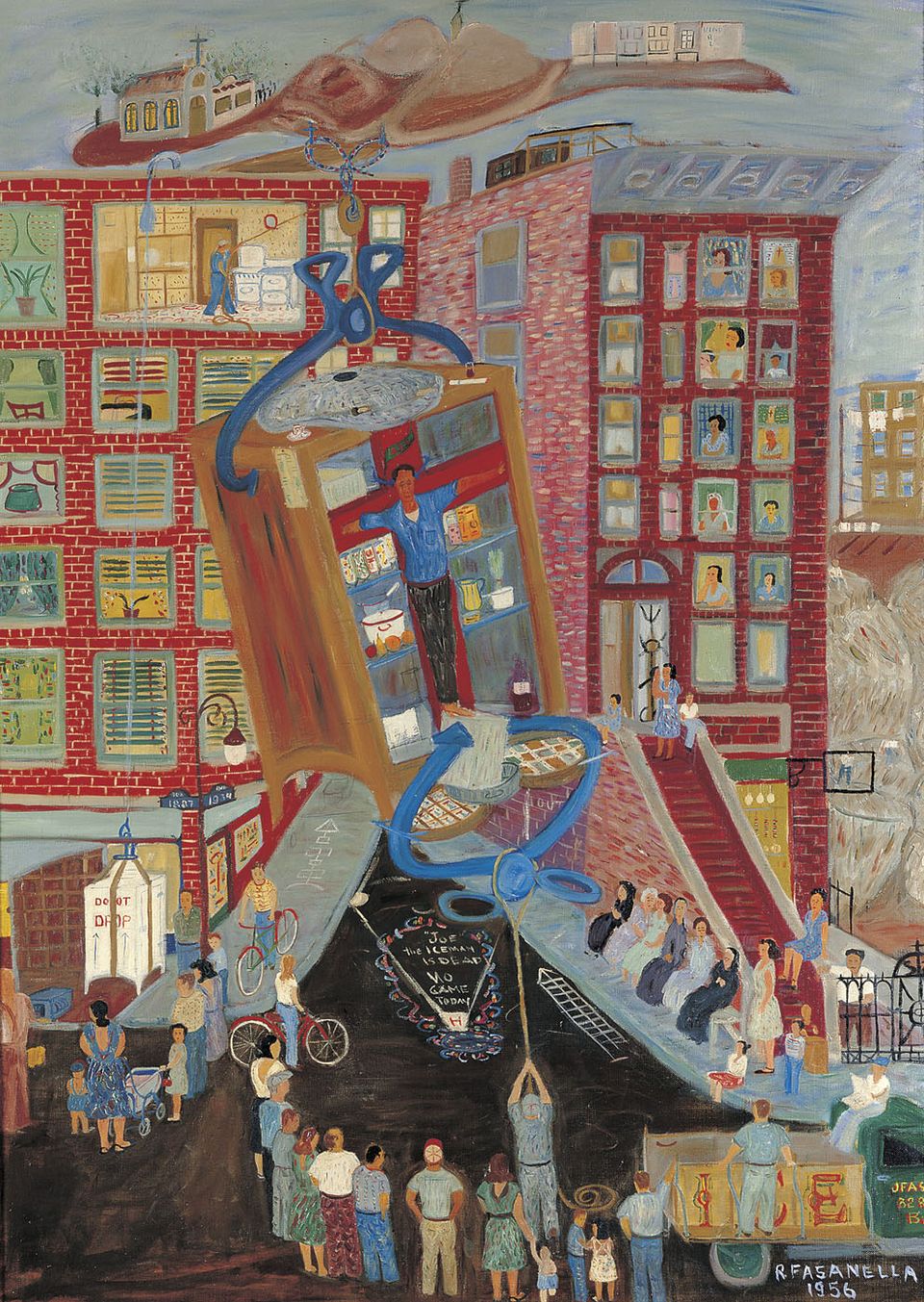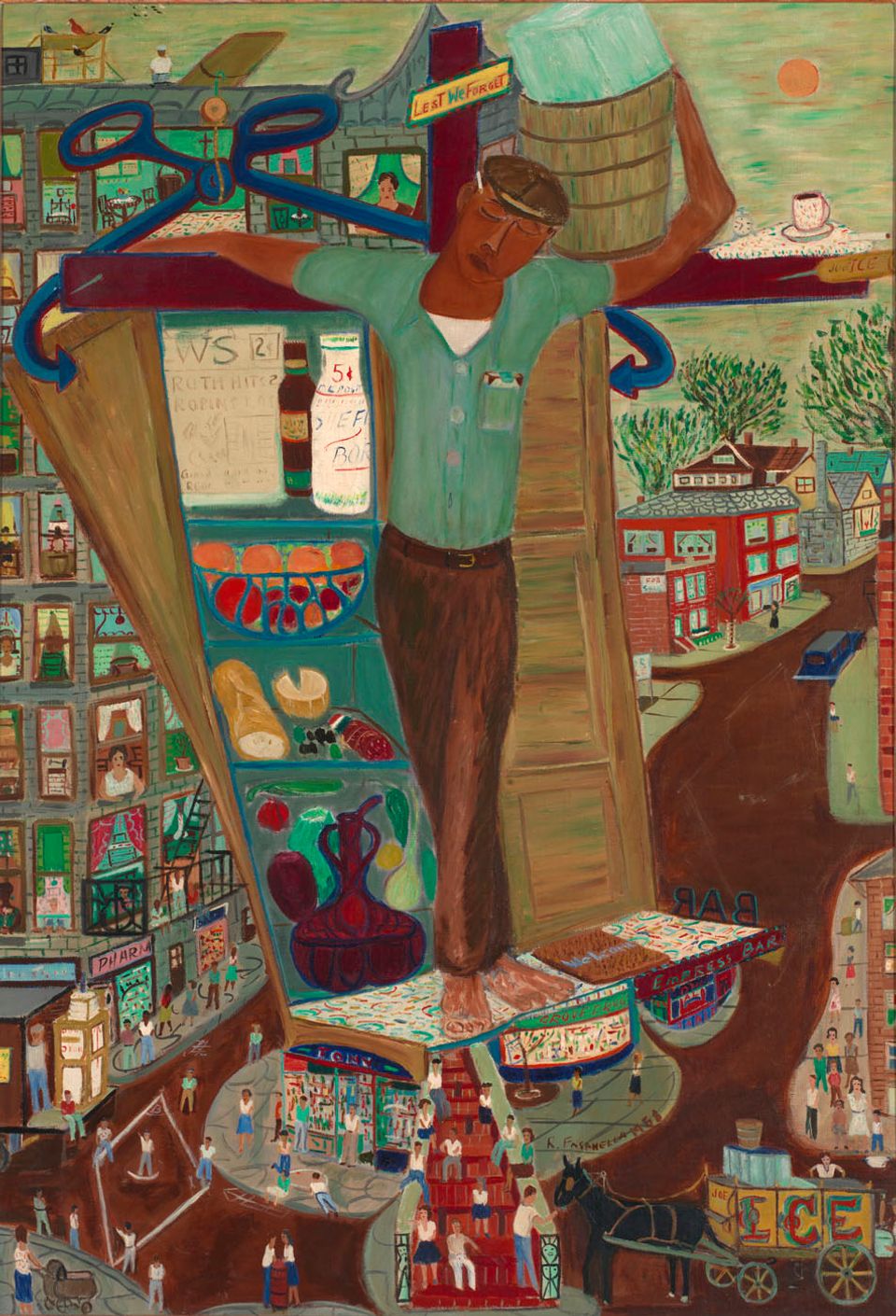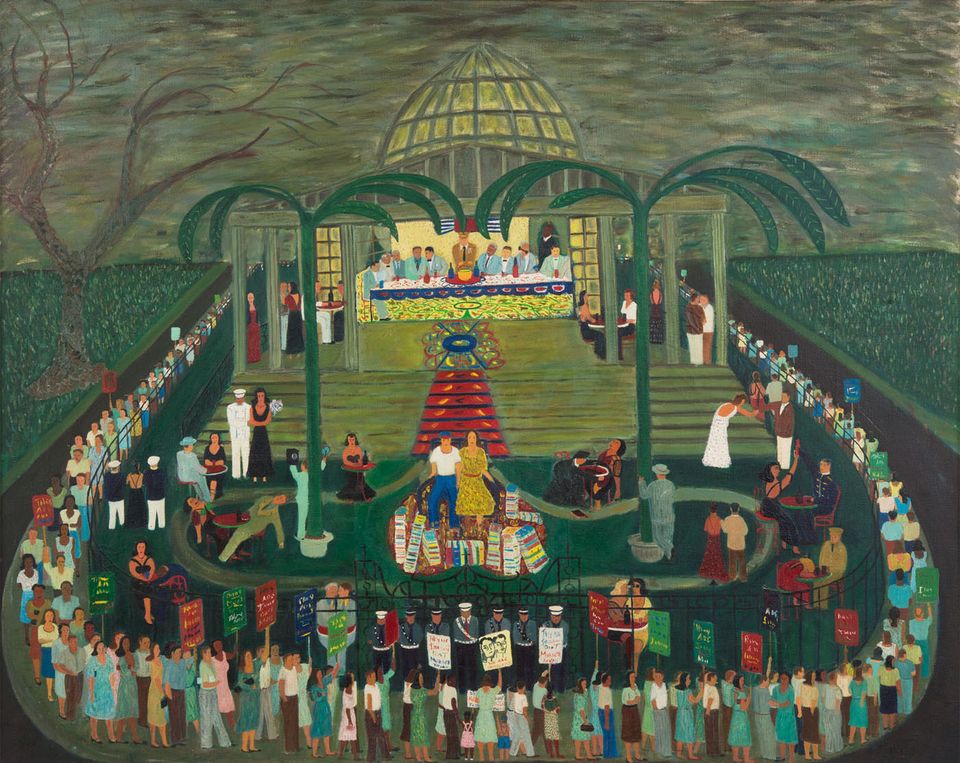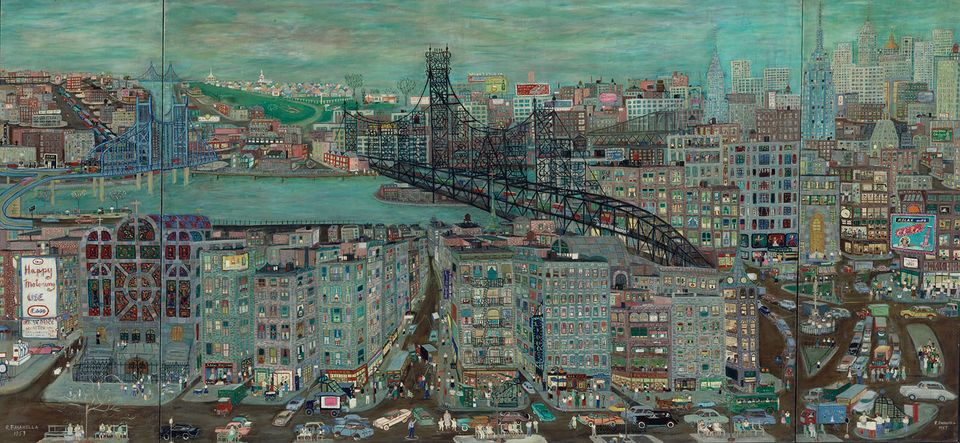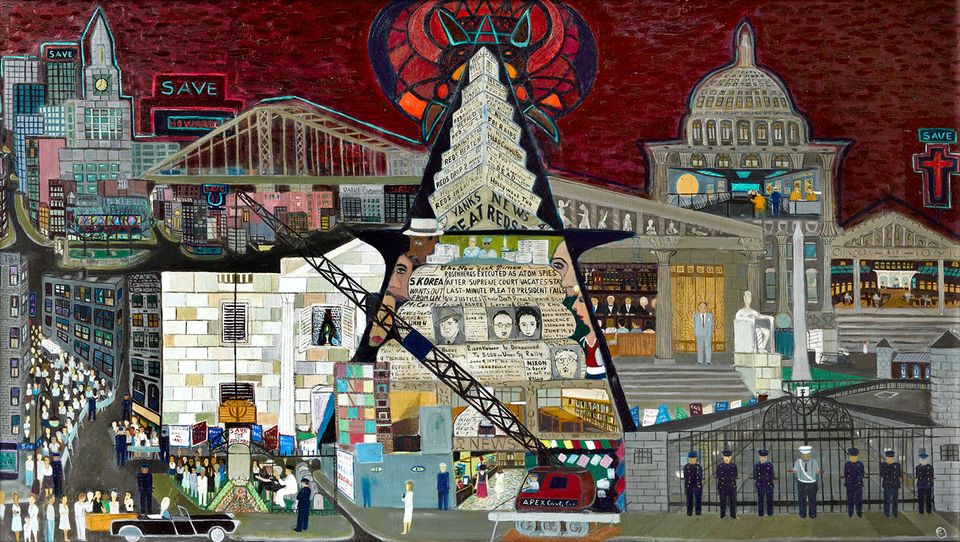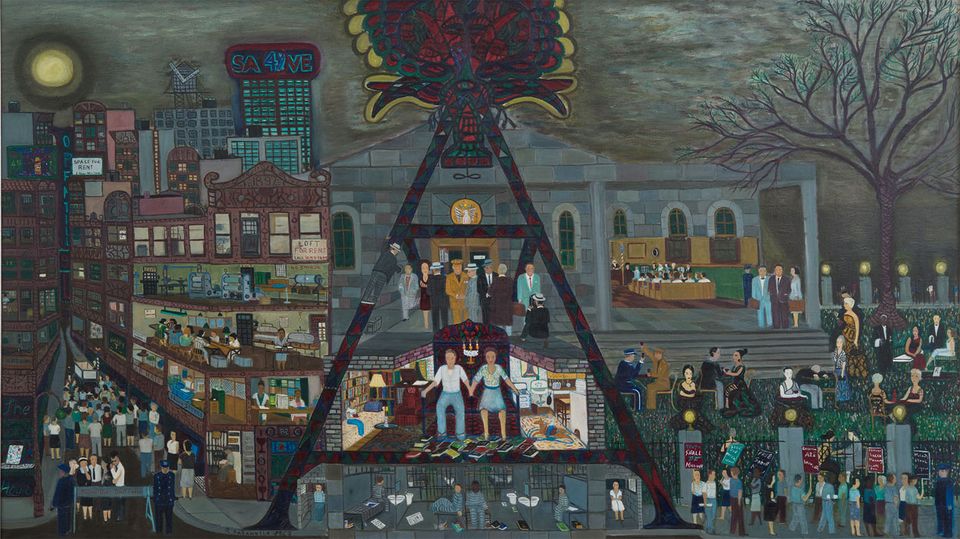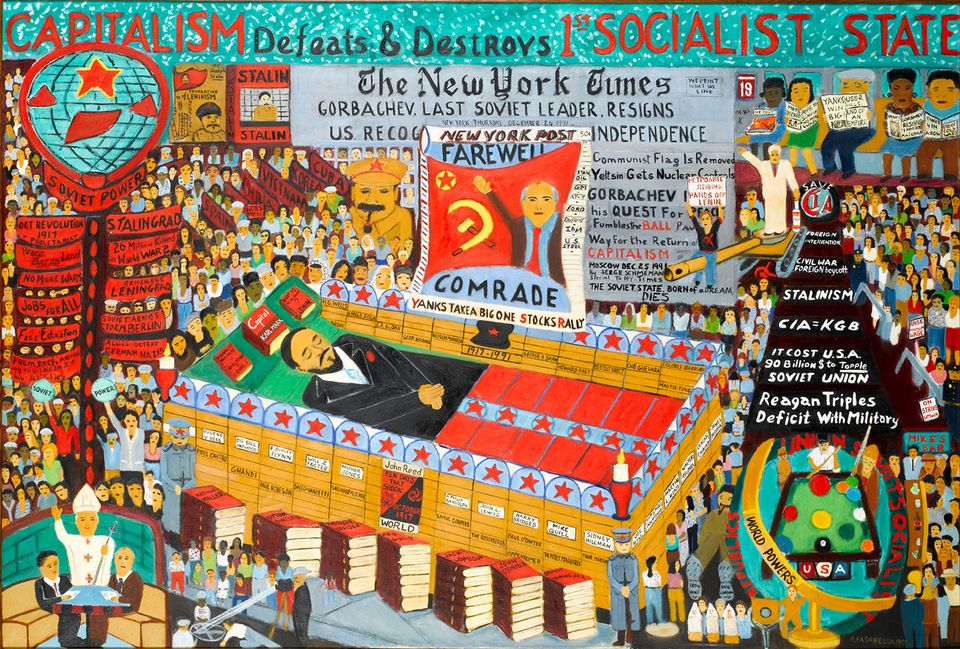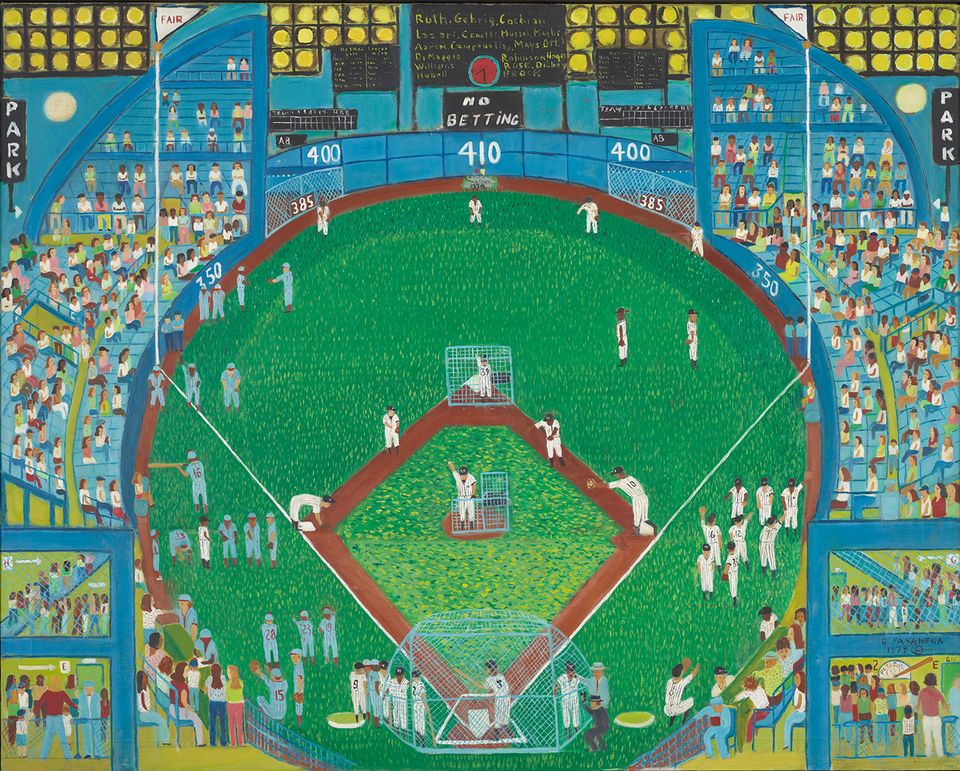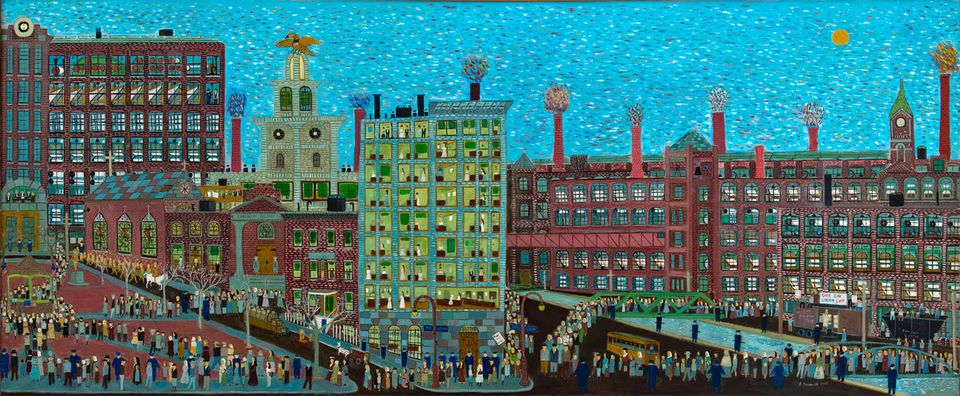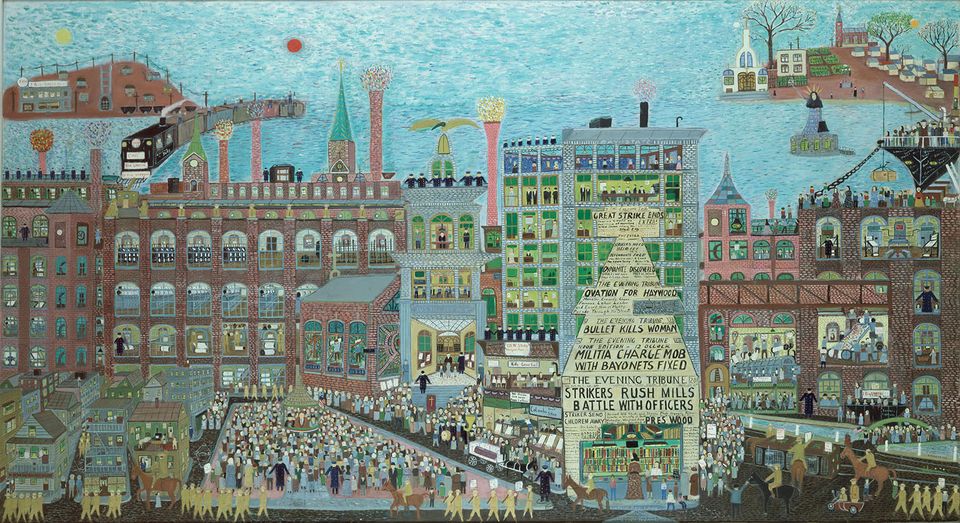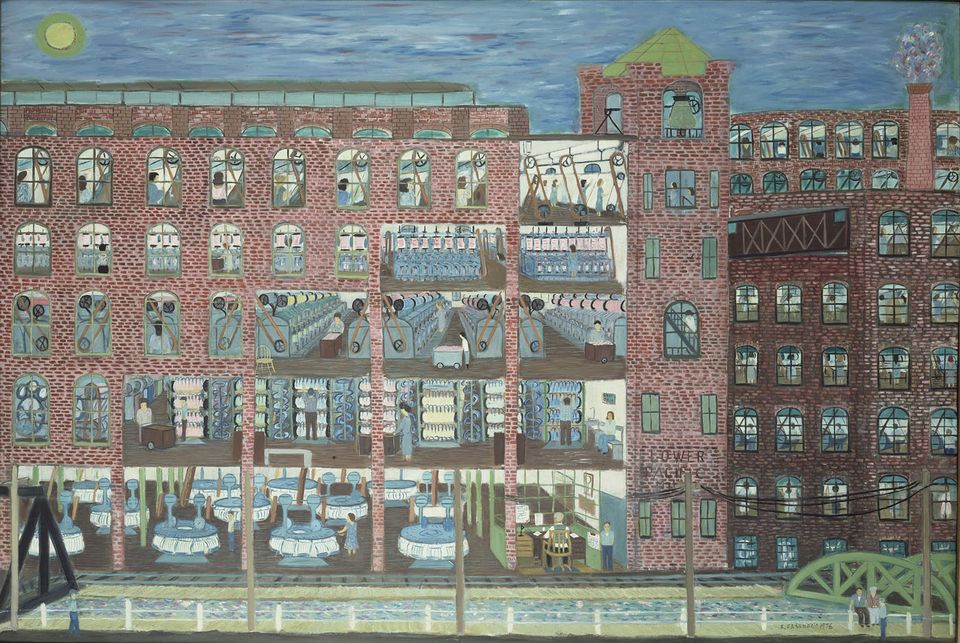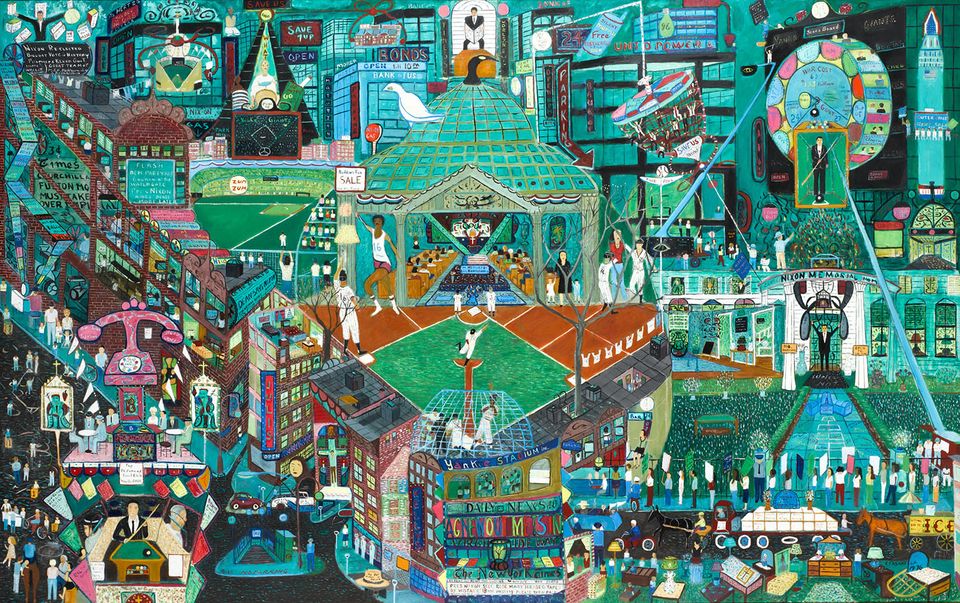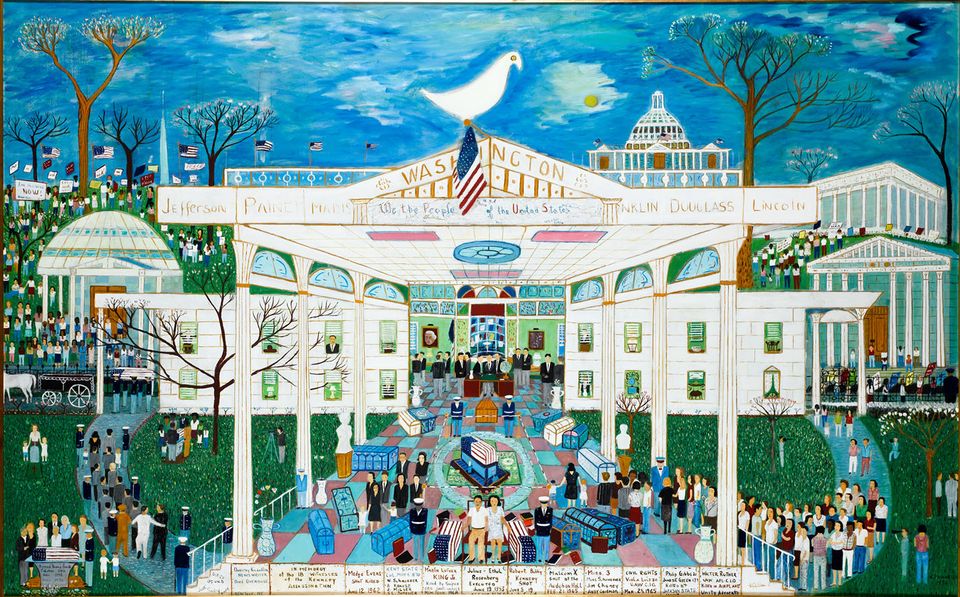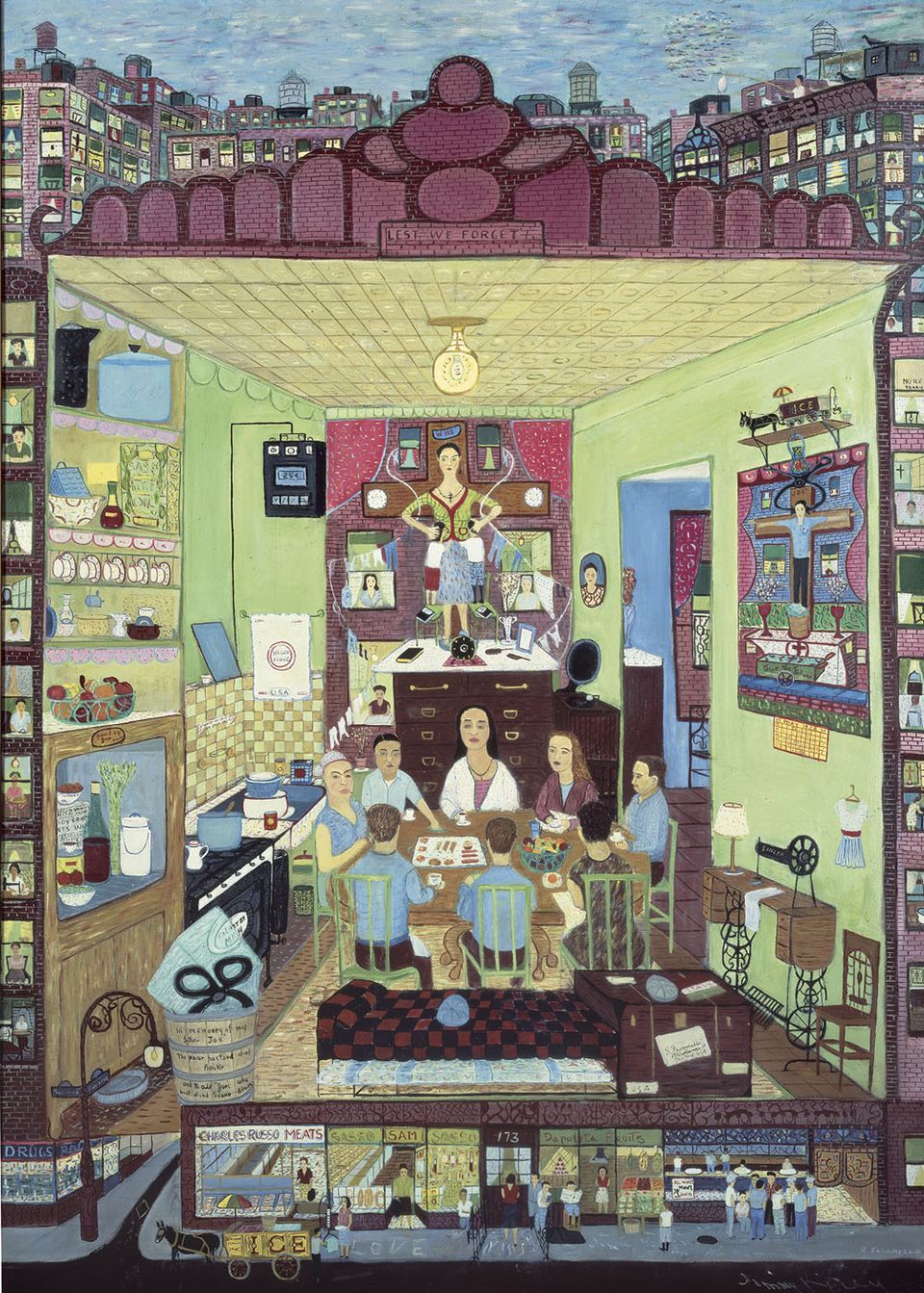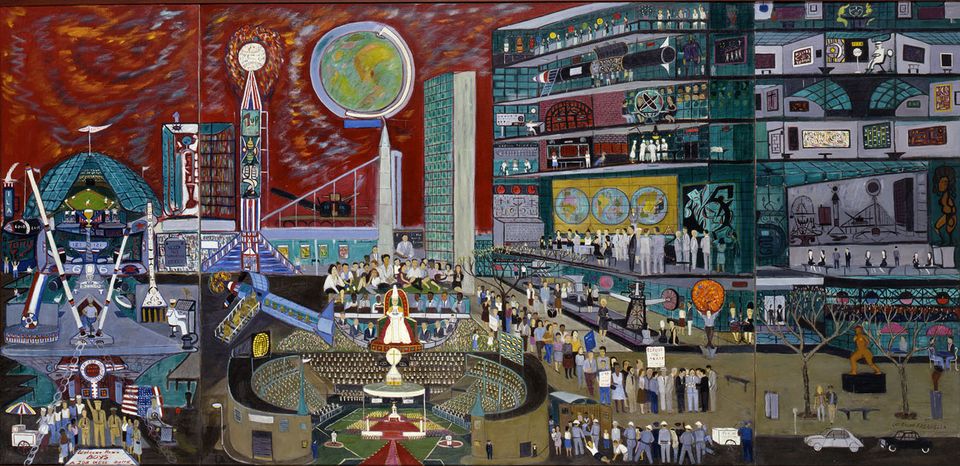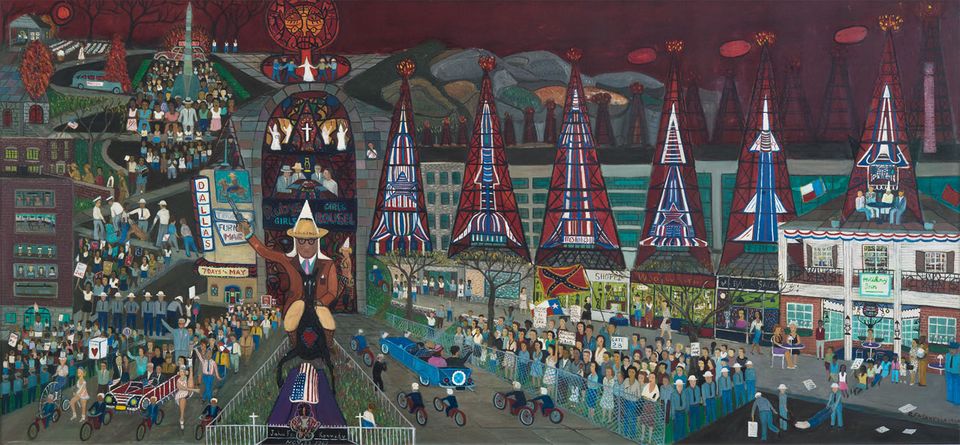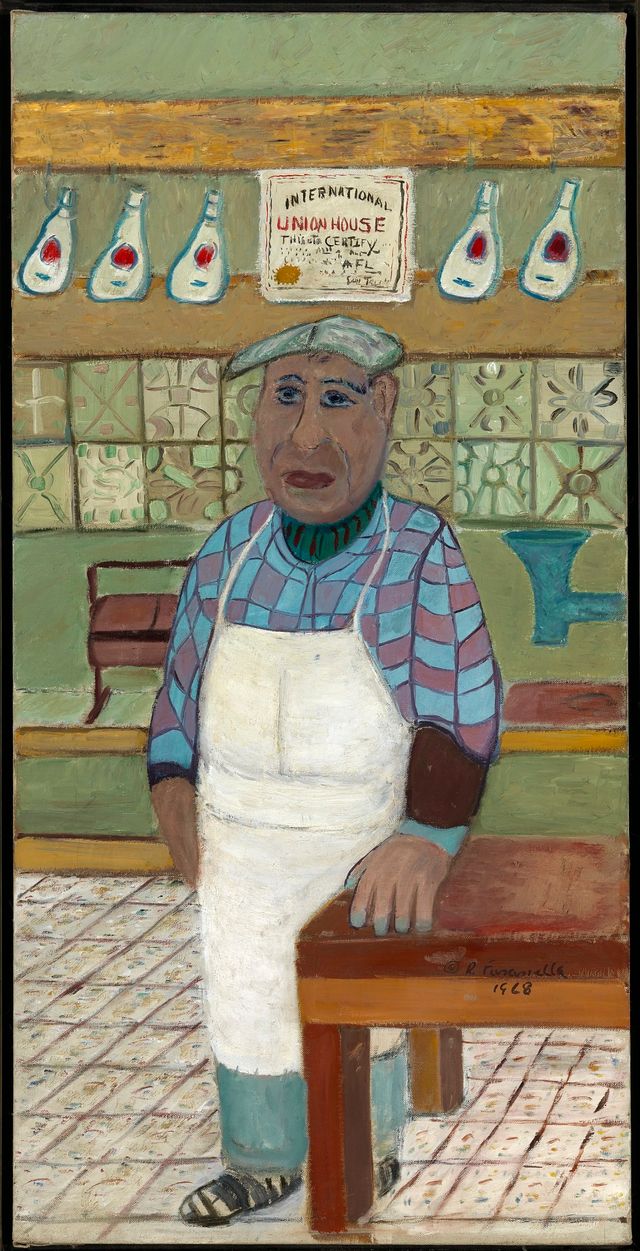Ralph Fasanella: Lest We Forget
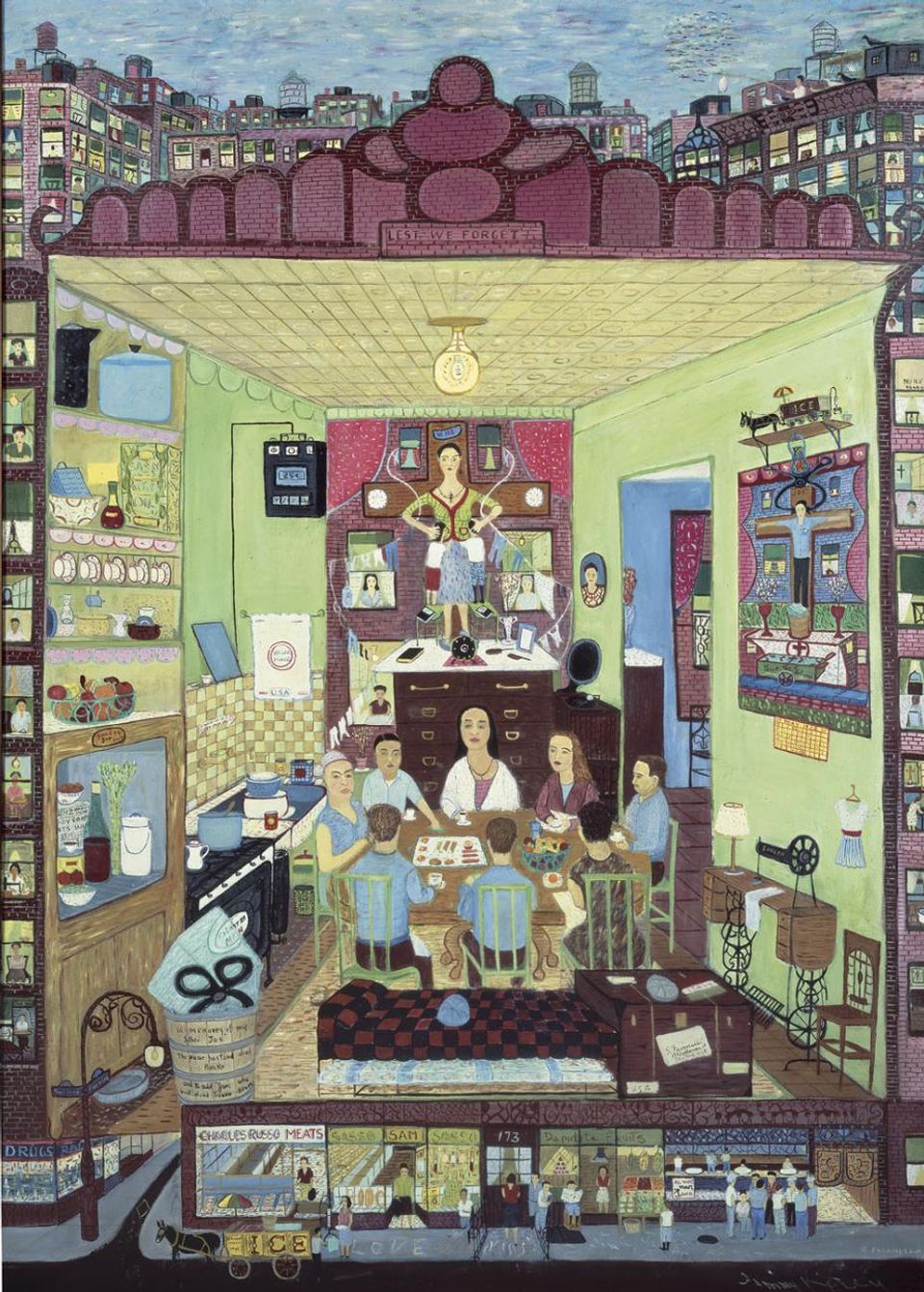
Ralph Fasanella, Family Supper, 1972, oil on canvas, National Park Service. © 1972, Estate of Ralph Fasanella
Ralph Fasanella (1914−1997) celebrated the common man and tackled complex issues of postwar America in colorful, socially-minded paintings. Ralph Fasanella: Lest We Forget celebrates the 100th anniversary of the artist’s birth and brings together key works from a career spanning fifty-two years.
Description
Fasanella was born in the Bronx and grew up in the working-class neighborhoods of New York. He became a tireless advocate for laborers’ rights, first as a union organizer and later as a painter. His parents were among three million Italians who immigrated to America in the early twentieth-century in search of a better life. They taught their son about both the costs and rewards of hard work. As a child, Fasanella labored with his father on an ice delivery route; long hours on tough streets. His mother made sure he encountered people whose lives were harder than their own and taught him the value of empathy and respect. The most lasting lessons he learned from his parents were that family and community came before personal gain, that younger generations stood on the shoulders of those who came before them, and that all Americans should fight for their rights, themes that would later resonate in his works.
Fasanella took up painting in 1945, working in the garment industry, as a truck driver, ice delivery man, union organizer and gas station owner before devoting himself to painting full-time in the 1970s. Untrained as an artist, Fasanella developed an astute and accessible style that reflected his affiliation with and commitment to the working class. He viewed painting as an extension of his union activity and his alternately subtle and brash paintings functioned simultaneously as memorial documents, didactic tools, and rallying cries, making the possibility of a better society palpable to his own community and others like it. These paintings, often large in scale and laden with symbolic imagery, deal with themes of struggle, endurance, social justice, family and community. He felt strongly about the need to remember the sacrifices of previous generations, inscribing the phrase “Lest We Forget” on several of his paintings.
As early as 1947, Fasanella was exhibited alongside the top social realist painters of the day. His works hung in both galleries and union halls and effectively bridged a divide between socially-aware, self-taught artists and their trained counterparts.
Among the 27 artworks on display are two major paintings from the museum’s permanent collection. Iceman Crucified #4 (1958) is a tribute to Fasanella’s father and a recent gift to the museum from the artist’s estate. In Modern Times (1966) the artist champions humanistic values in an increasingly technological modern world. This centennial tribute marks the first time both paintings will be on public display at the museum.
Extend your tour of Ralph Fasanella’s art by visiting the complementary exhibition, Ralph Fasanella: The Art of Social Engagement (May 2 – August 1, 2014), on display in the lobby of the AFL-CIO Headquarters in Washington, D.C.
Visiting Information
Tour Schedule
Videos
Credit
Ralph Fasanella: Lest We Forget is organized by the Smithsonian American Art Museum with generous support from Tania and Tom Evans, Herbert Waide Hemphill, Jr. American Folk Art Fund, and Paula and Peter Lunder. The C.F. Foundation in Atlanta supports the museum’s traveling exhibition program, Treasures to Go.
Artists
Ralph Fasanella celebrated the common man and tackled complex issues of postwar America in colorful, socially-minded paintings. Fasanella was born in the Bronx and grew up in the working-class neighborhoods of New York.











